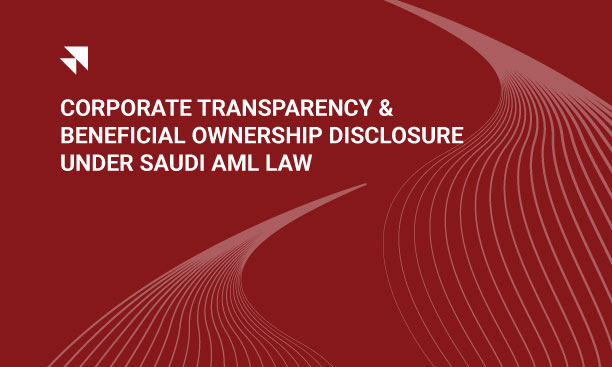Contracts are the backbone of business transactions, ensuring that parties fulfill their obligations as agreed. In Saudi Arabia, contracts are governed primarily by Islamic Sharia principles. They are supplemented by statutory laws, including the Saudi Civil Transactions Law (2023) and relevant commercial regulations. A breach of contract can lead to severe legal consequences. Understanding the legal remedies available is crucial for individuals and businesses operating in the Kingdom.
Legal Framework Governing Contracts in Saudi Arabia
The key laws governing contracts in Saudi Arabia include the Saudi Civil Transactions Law (2023). This law serves as the main legal statute regulating contractual obligations and liabilities. Articles 122-150 outline provisions related to contract enforcement and breach. Furthermore, the Commercial Court Law (2020) regulates commercial disputes arising out of contractual breaches. Meanwhile, the Saudi Labor Law covers employment contract disputes. The Government Tenders and Procurement Law governs contracts involving government entities. The Arbitration Law (2012, amended in 2023) provides mechanisms for resolving contract disputes outside court.
Types of Breach of Contract
A breach of contract occurs when one party fails to fulfill its obligations as agreed. The types of breaches include material breaches, where a significant failure undermines the contract’s purpose, such as the failure to deliver goods or services. A minor breach is a less serious violation. It does not void the contract but causes inconvenience. An anticipatory breach occurs when one party indicates an intention not to fulfill obligations before the due date. A fundamental breach is so severe that the non-breaching party is entitled to terminate the contract immediately.
Legal Remedies for Breach of Contract in Saudi Arabia
Under Saudi law, various legal remedies are available to address a breach of contract. Specific performance is one of the primary remedies. According to Article 180 of the Civil Transactions Law, if a party fails to fulfill contractual obligations and damages were undefined in the contract, the court may order performance. This is particularly true in cases involving unique goods, services, or property, where monetary compensation is insufficient.
Compensation for damages is another remedy, allowing the injured party to claim financial and moral damages resulting from the breach. This compensation shall fully remedy the damage. It aims to return the injured party to the position he was in or could have been in had the damage not occurred. Additionally, in some cases, this compensation covers the loss suffered by the injured party and the gain he missed due to breaching the contractual obligations. This is as outlined in Article 136-139. These damages include direct losses, such as unpaid invoices or lost profits, and consequential losses like reputational damage. In rare cases, punitive damages are awarded due to fraudulent breaches.
Termination of contract is another remedy available under Article 107. It allows the affected party to seek contract dissolution if the breach is fundamental. However, in some cases courts may assess whether the breach justifies termination and whether compensatory damages should be awarded or not.
Moreover, another type of contract may include liquidated damages clauses. These specify pre-determined penalties for breaches. According to Article 108, courts will enforce such clauses unless they are deemed excessively unfair. Additionally, courts may issue injunctions and preventive orders to stop further contract violations. This is particularly relevant in cases involving intellectual property infringement or non-compete breaches.
Steps for Contract Enforcement in Saudi Arabia
If a breach occurs, the affected party should first review the contract to assess the terms, obligations, and breach clauses. It is crucial to check whether the contract contains an arbitration, mediation, or litigation clause. Before resorting to legal action, Saudi law encourages parties to resolve disputes amicably through negotiation, which can save time and costs. If resolution attempts fail, the next step is to send a formal legal notice demanding corrective action within a specified timeframe. This notice serves as evidence if the dispute escalates.
If the breaching party does not respond or rectify the situation, the next step is to file a claim with the relevant authority. For commercial disputes, claims should be filed with the Commercial Courts. Employment disputes should be taken to the Labor Courts. Government contract disputes should be submitted to the relevant government agency. If arbitration is stipulated in the contract, the dispute should be submitted to an arbitration center instead. During court proceedings or arbitration hearings, parties must present evidence, contracts, and witness testimonies. However, courts in Saudi usually follow Sharia principles, which increasingly align with international contract law.
Once a judgment is issued, enforcement is the final step. Successful claims result in compensation orders or performance directives. The Execution Court ensures compliance with rulings. Non-compliance can lead to asset seizure or travel bans on the breaching party
Conclusion
Saudi Arabia has a robust legal framework for enforcing contracts and remedying breaches. Legal remedies range from specific performance and monetary compensation to termination and arbitration. Understanding the Saudi Civil Transactions Law and commercial dispute mechanisms ensures better contract enforcement and legal protection in the Kingdom.
This article offers a general overview of the subject matter and is not a substitute for legal advice. For guidance tailored to your specific circumstances, professional consultation is recommended.
If you choose us to support your specific issue, please do not hesitate to contact us using Inquiries Form (link) or by sending an email to info@ahysp.com






